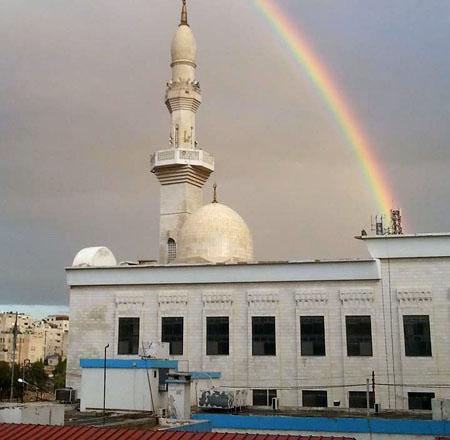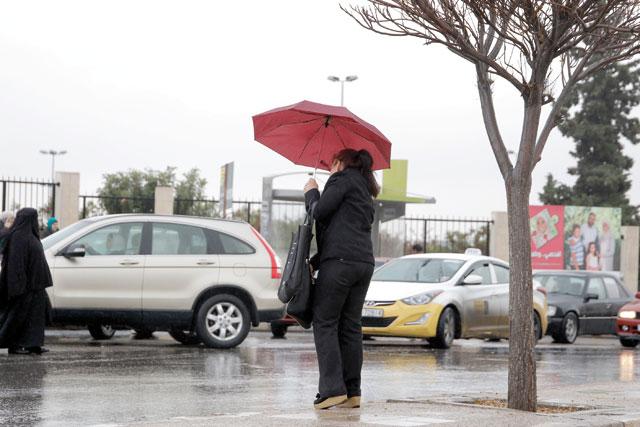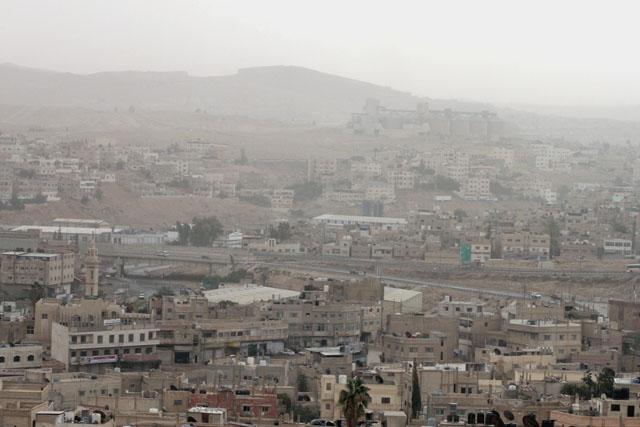You are here
Recent rainfall ‘good news’ for farmers, agriculture sector
By Muath Freij - Nov 01,2014 - Last updated at Nov 01,2014

AMMAN — For Khalifa Ziadat, the rainfall Jordan received over the past two days will encourage him to start planting wheat on his land.
The Eerah-born farmer said the weekend’s precipitation came at a good time and will motivate most farmers in his area to start cultivating their lands.
Eerah, part of Balqa Governorate, is located 40km northwest of Amman.
“No one expected the rain to start at this time of the season, yet it is good news for all farmers,” the 43-year-old told The Jordan Times over the phone on Saturday.
He is among several farmers and Jordanian officials who agreed that the recent rainfall will positively contribute to this season’s agriculture produce.
Agriculture Ministry Spokesperson Nimer Haddadin said Jordan did not receive rain at this time last year.
“The timing of this rainfall makes us hope that this year’s season will be better than last year’s,” he told The Jordan Times.
Farouq Obeidat, an olive farmer residing in the city of Irbid, 80km north of Amman, said last year’s rain was below farmers’ expectations.
Obeidat said the past summer was also harsh for most trees, which are in need of water.
“The rainfall that the Kingdom witnessed on Friday and Saturday has washed the olive trees and will enable farmers to pick olives easily, saving them extra efforts,” he added.
Haddadin said the rainfall will not only be beneficial for olive trees, but for other crops as well.
“Some farmers were reluctant to plant wheat and barley because they were waiting for rain. This depression will now motivate them to start cultivating these crops,” he noted.
Meanwhile, in a statement e-mailed to The Jordan Times, the Civil Defence Department (CDD) said its teams rescued people who were stranded by heavy rain in the Dead Sea area on Friday.
The CDD rescued 26 people who were stranded in Zara Maeen and 17 people in Wadi Hamra area, according to the statement.
The highest rainfall registered until Saturday morning was in Salt (28.5 millimetres), followed by Ras Muneef in Ajloun Governorate (24.5mm) and Baqoura (21.7mm), according to the Jordan Metrological Department (JMD).
On Sunday, it will be cloudy with a chance of showers in the northern and central regions during the daytime, according to a JMD statement.
Temperatures in Amman are forecast to increase slightly, with a daytime high of 21ºC and a nighttime low of 11ºC, according to the JMD website.
The weather is forecast to be relatively cold on Monday and Tuesday, with rain expected in the northern and central areas of the Kingdom.
Haddadin called on farmers to construct reservoirs to collect rainfall.
“Jordan is one of the poorest countries when it comes to water and farmers have to take advantage of the rainfall because most of it is wasted,” he noted.
Haddadin said farmers should construct ponds and reservoirs to collect rainwater during winter, and can benefit from the Agricultural Credit Corporation, which extends soft agricultural loans for applying rainwater harvesting techniques at farms.
Jordan, the world’s second water poorest country, witnesses its first rainfall in mid-September or early October, while the wet season usually continues until February, according to the JMD.
The Kingdom relies mainly on rainwater, but only 1.1 per cent of its total area receives an average of 400-600mm of rain a year, according to official figures.
Approximately 91 per cent of Jordan’s total area of 97,000 square kilometres is situated in arid areas with an annual rainfall average of 50-200mm, while 2.9 per cent of the country’s land is categorised as semi-arid.
Related Articles
AMMAN — Rain on Tuesday ended a state of looming drought, dispelling farmers’ fears of a low production season, according to officials.Water
The Kingdom will remain this week under the impact of unstable weather conditions, which will bring scattered showers and thunderstorms, the Jordan Meteorological Department (JMD) said on Saturday.
Rainfall over the past two days dispelled fears of a looming drought this year, with some five million cubic metres (mcm) of water entering the dams between late Tuesday and early Wednesday, according to officials.














